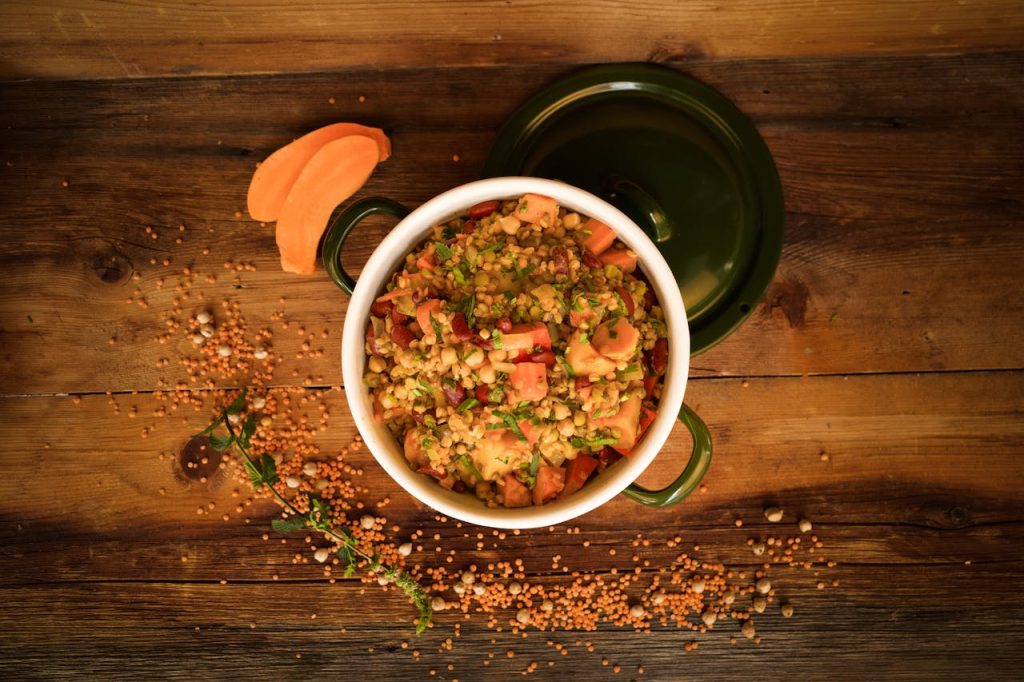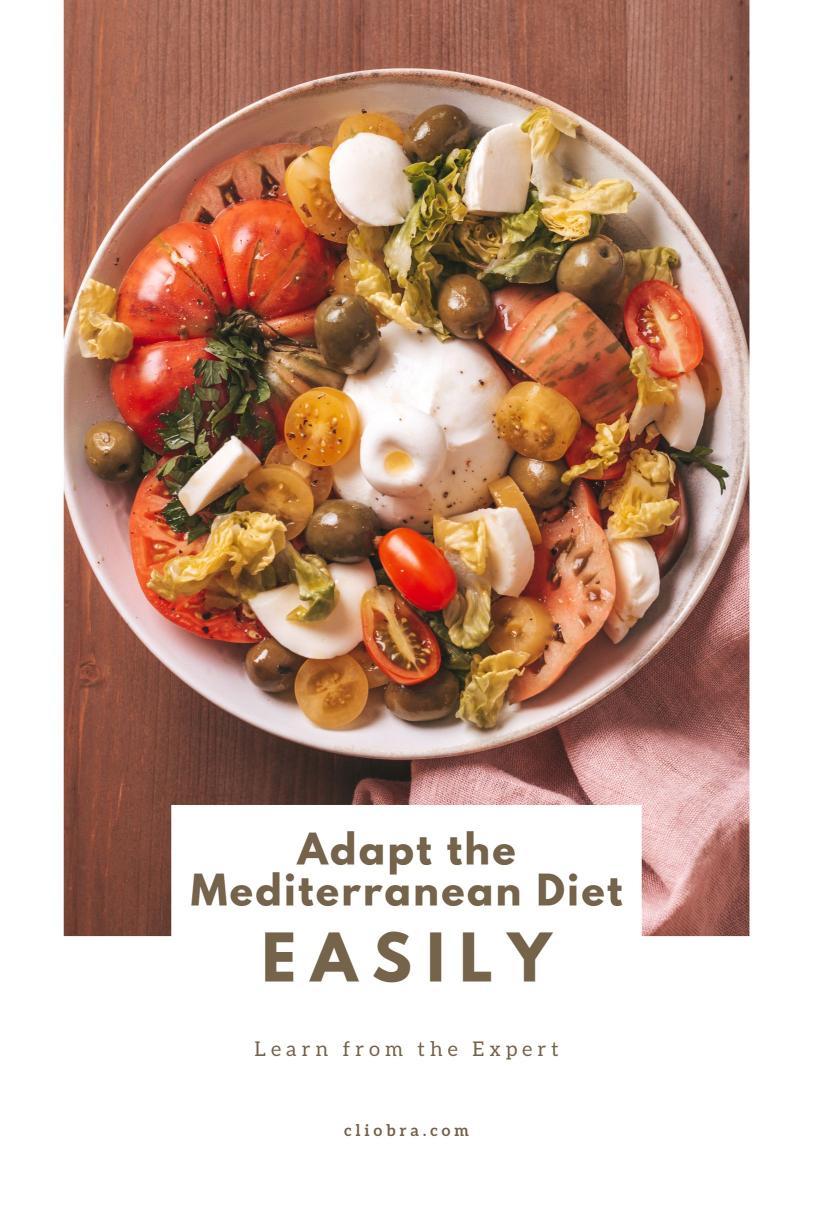Last Updated on January 23, 2025 by Arif Chowdhury
If you’re a vegetarian looking to explore the health benefits of the Mediterranean diet, you’re in luck! The Mediterranean diet is widely known for its heart-healthy, anti-inflammatory properties, and the good news is that it can be easily tailored to suit a plant-based lifestyle.
With its focus on whole foods like fruits, vegetables, legumes, nuts, and whole grains, the Mediterranean diet already aligns with many vegetarian principles. But there are still some unique adjustments that can help you get the most out of this nutrient-rich eating style.
In this article, we’ll guide you on how to adapt the Mediterranean diet to your vegetarian lifestyle while still enjoying its delicious, vibrant flavors.
Whether you’re looking for new meal ideas, tips for balancing nutrition, or simply want to know how to make the Mediterranean diet work for you, we’ve got you covered.
Let’s dive in!
What is the Mediterranean Diet?
Before we delve into how to make it vegetarian-friendly, let’s take a closer look at what the Mediterranean diet is all about.
The Mediterranean diet is inspired by the traditional eating habits of people living in countries bordering the Mediterranean Sea, including Greece, Italy, Spain, and southern France. It emphasizes the consumption of:
- Fresh fruits and vegetables: Seasonal and local produce like tomatoes, cucumbers, leafy greens, and berries.
- Whole grains: Brown rice, quinoa, farro, and whole-wheat pasta are staples in this diet.
- Healthy fats: Olive oil is the cornerstone of this diet, replacing less healthy fats like butter.
- Nuts and seeds: Walnuts, almonds, chia seeds, and flaxseeds are commonly included for added nutrients.
- Legumes: Beans, lentils, and peas are rich in protein and fiber, making them perfect for a vegetarian diet.
- Fish and seafood: While not a vegetarian choice, these are included in the Mediterranean diet for their healthy omega-3 fatty acids.
Research consistently highlights the Mediterranean diet’s role in reducing the risk of heart disease, improving longevity, and managing chronic conditions.
A study conducted by the New England Journal of Medicine found that individuals following a Mediterranean diet had a 30% lower risk of heart disease.
However, for those who prefer plant-based eating, it’s important to know how to adjust the diet to meet your preferences.
Key Components of the Mediterranean Diet That Fit a Vegetarian Lifestyle
For vegetarians, it’s easy to embrace the Mediterranean diet’s focus on plant-based foods. Here’s a closer look at the diet’s core components and how they align with vegetarian eating habits:
1. Emphasis on Vegetables and Fruits
- The Mediterranean diet celebrates fresh, seasonal vegetables like eggplant, zucchini, tomatoes, and leafy greens, which are all vegetarian-friendly. These vegetables can form the bulk of any meal, making it simple to enjoy the Mediterranean diet without meat.
- Fruits such as citrus, berries, figs, and melons are abundant in the Mediterranean diet, providing a healthy dose of vitamins, antioxidants, and fiber. Fruits are often eaten as snacks or desserts in Mediterranean cultures, and they make a great addition to breakfast or lunch.
Statistical Fact: According to the American Heart Association, consuming 5-9 servings of fruits and vegetables per day can significantly reduce the risk of cardiovascular diseases.
2. Healthy Fats from Olive Oil
- Olive oil is the cornerstone of the Mediterranean diet, replacing other oils and fats like butter. It’s rich in heart-healthy monounsaturated fats and antioxidants, which contribute to better overall health.
- For vegetarians, olive oil is an excellent fat source that can be used in salads, cooking, and drizzling over roasted vegetables. It adds flavor and a healthy dose of fat to plant-based meals.
3. Legumes as a Protein Source
- Legumes like lentils, beans, and chickpeas are high in protein, fiber, and essential nutrients, making them a perfect protein alternative for vegetarians. These foods can easily replace meat in many Mediterranean dishes.
- Whether in a hearty lentil soup or a chickpea salad, legumes provide the necessary protein and fiber to keep you satisfied.
Statistical Fact: A study from Harvard T.H. Chan School of Public Health found that eating plant-based protein sources like legumes can reduce the risk of heart disease by 25%.
4. Nuts and Seeds for Added Nutrients
- Mediterranean diets incorporate a variety of nuts and seeds, including almonds, walnuts, and sunflower seeds. These provide not only healthy fats but also protein and fiber—important nutrients for vegetarians.
- A handful of nuts or seeds can be added to salads, smoothies, or even eaten as a snack. They contribute to balanced meals and are a great way to ensure you’re getting enough nutrition.
5. Whole Grains as a Staple
- Whole grains such as quinoa, farro, and bulgur are rich in fiber and provide long-lasting energy. These grains serve as a hearty base for many Mediterranean dishes and are an easy addition to any vegetarian meal.
- A Mediterranean grain bowl with roasted vegetables, chickpeas, and a drizzle of olive oil is not only nutritious but incredibly satisfying.
6. Herbs and Spices for Flavor
- One of the joys of Mediterranean cuisine is its use of fresh herbs and spices like basil, oregano, thyme, rosemary, and garlic. These ingredients add depth of flavor to vegetarian dishes without needing to rely on meat for taste.
- Seasoning your dishes with these herbs can elevate the simplest meals, such as a vegetable stir-fry or a chickpea stew, to Mediterranean-inspired perfection.
How to Make Mediterranean Dishes Vegetarian
Adapting Mediterranean meals for a vegetarian lifestyle involves swapping out animal-based proteins and focusing on plant-based alternatives.

Here are a few ideas to get you started:
1. Mediterranean Vegetable Stews and Soups
Traditional Mediterranean stews like ratatouille or minestrone can be made completely vegetarian by using only vegetables, beans, and whole grains. These dishes are packed with nutrients, fiber, and antioxidants.
2. Vegetarian Paella
Instead of the typical seafood or chicken version, a vegetarian paella can be made using artichokes, bell peppers, tomatoes, peas, and a variety of other seasonal vegetables. Paella rice is a staple in Mediterranean cooking, and when combined with saffron and garlic, it creates a delicious base for the dish.
3. Greek Salad with Chickpeas
Replace the typical feta cheese with chickpeas or tofu for a vegan-friendly version of the classic Greek salad. Adding olive oil, fresh oregano, and a squeeze of lemon will give it that Mediterranean flair.
4. Falafel with Tahini Sauce
Falafel is a Middle Eastern dish often included in Mediterranean meals, and it’s made with chickpeas or fava beans, making it the perfect vegetarian protein source. Pair it with a tangy tahini sauce and serve it with whole grain pita or on a bed of greens.
5. Vegetarian Pasta Dishes
Mediterranean-style pasta is often made with simple, fresh ingredients like garlic, olive oil, and fresh vegetables. A pasta primavera with roasted vegetables, olives, and a sprinkle of parmesan makes for a wholesome vegetarian meal.
Tips for a Balanced Vegetarian Mediterranean Diet
To ensure you’re meeting all your nutritional needs on a vegetarian Mediterranean diet, here are a few tips:
- Include variety: Aim to incorporate a wide range of fruits, vegetables, legumes, nuts, and grains into your meals. This variety will help you get a balanced mix of vitamins, minerals, and antioxidants.
- Focus on whole foods: As much as possible, opt for whole grains, unprocessed vegetables, and plant-based protein sources like beans and tofu. The more natural your food, the better.
- Watch your protein intake: While legumes and grains provide a good amount of protein, it’s important to balance your meals with other sources like nuts, seeds, and plant-based dairy.
- Hydrate: In the Mediterranean, water and herbal teas are common drinks. Make sure to drink plenty of water throughout the day to stay hydrated.
Conclusion
Adapting the Mediterranean diet to a vegetarian lifestyle is easier than you might think. With its abundant focus on plant-based foods like vegetables, legumes, whole grains, and healthy fats, it naturally fits into a vegetarian way of eating.
By making a few simple swaps—such as using plant-based protein sources and embracing the rich flavors of Mediterranean herbs—you can enjoy all the benefits of this heart-healthy, nutrient-rich diet.
So, whether you’re new to vegetarianism or just looking for some inspiration in the kitchen, the Mediterranean diet is a delicious and satisfying choice that can be tailored to suit your lifestyle.
